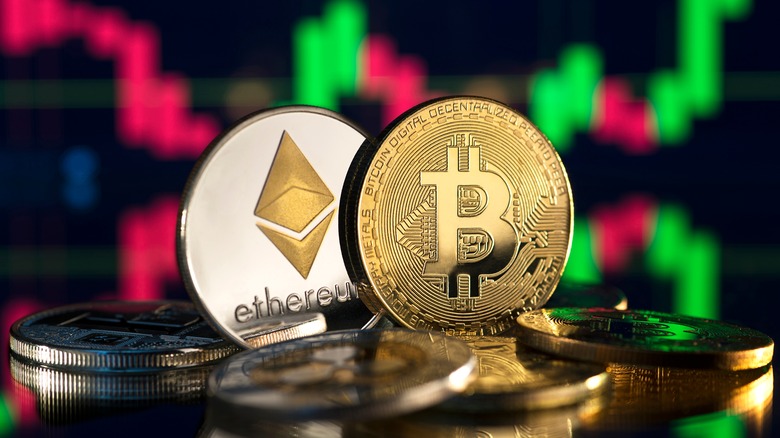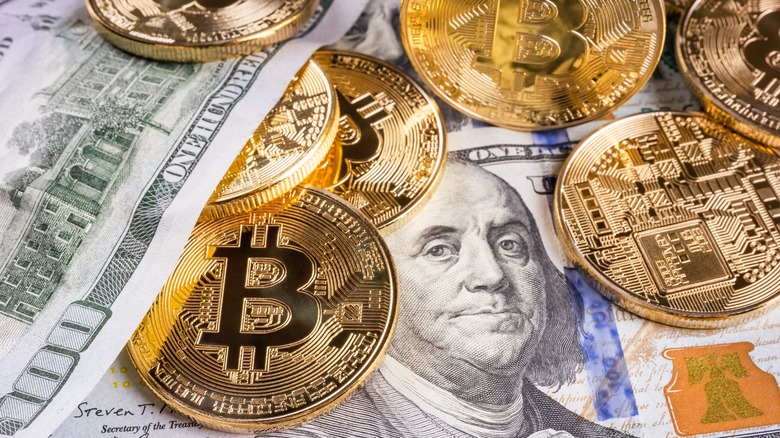Where Do Cryptocurrencies Get Their Value?
Money has come a long way since the human race began using it as a way to pay for goods provided or services rendered. Bartering — or swapping something you may not necessarily want for something you need — first began tens of thousands of years ago. From there, people used items they determined had value: cattle, edible plant products, and shells, with the cowrie seen as the oldest form of currency in human history. It was not until 1000 B.C. that the first minted metal coins were used in China. Humanity jumped on the fungible medium of exchange fad and never looked back, but exactly what comprises that fungible medium has been evoloving since its advent.
We've come a long way, baby.
Today we're looking at what early adopters feel is the next step in the evolution of money: cryptocurrency, which isn't gold, silver, or salt. It isn't even backed by the full faith and credit of a particular nation or state. So is cryptocurrency the next stage in financial evolution or the latest worthless symptom of end stage capitalism? Honestly — it's a bit of both. Here's how crypto gets its price.
Cryptocurrency isn't the same as contactless credit
Cryptocurrency isn't the same as a contactless credit card, which is essentially your physical credit card that's been loaded into a mobile device, like your phone or watch. Cryptocurrencies like Bitcoin, Ethereum, and Tether sit in the digital world, but they aren't tied to anything physical. So how do cryptocurrencies like these get their value? Experts say these non-tangible currencies are valuable because there's a group of people that believe them to be so. That's not too far fromt he truth.
"The actual value that these units have in people's minds, like Bitcoin, for example, is whatever people believe it to be," says Andrew Wu, a professor at the University of Michigan (per ABC 10). "People believe that it [crytopcurrency] has ... some value. For example, either as an inflation hedge or as a way of a speculative vehicle. So, it's very similar to a digital version of gold," notes Wu, adding, "that's basically the case for almost all of these cryptocurrencies out there."
But the belief that cryptocurrencies are worth something also stems from several more grounded factors in addition to pure faith.
Factors that determine cryptocurrency's legitimacy
One factor that determines cryptocurrency's value is supply and demand — and there isn't enough crypto to satisfy everyone's desire to own the virtual money. Another factor is market perception. "If you're the only person in the world that thinks something has value, it has sentimental value. When two people agree that something has value, that's where its value is derived from, and supply and demand determine the price," Bitcoin Foundation chairman Brock Pierce tells Insider.
Coindesk, which monitors cryptocurrency news and price movements, also compares cryptocurrencies with listed corporate stocks — whose prices are determined by how much stock market investors want these shares. In-demand equities like Apple may be more expensive, while less popular stocks come at a lower price. And the common hope among crypto users is that it will eventually replace cash and credit. "People have a difficult time wrapping their heads around cryptocurrency because it doesn't fit into any of the conventional buckets," Pierce says.
Not everyone feels the same way about cryptocurrencies. Noted billionaire and philanthropist Warren Buffett is an outspoken critic of cryptocurrency. He said, "Assets, to have value, have to deliver something to somebody. And there's only one currency that's accepted. You can come up with all kinds of things — we can put up Berkshire coins ... but in the end, this is money. And there's no reason in the world why the United States government ... is going to let Berkshire money replace theirs," per CNBC.


